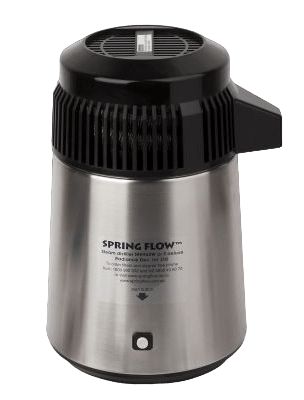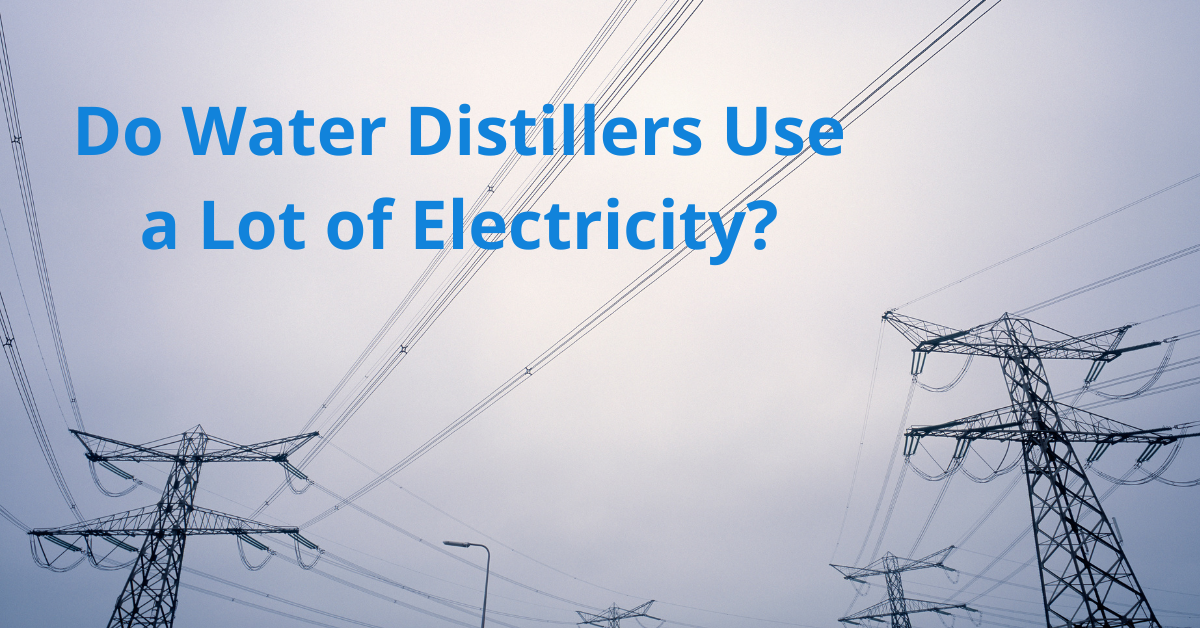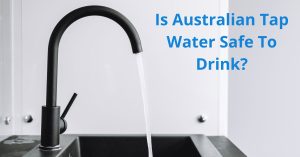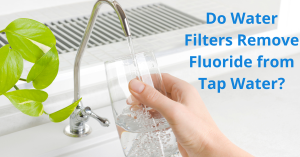If you’re considering to buy home water distiller, such as a countertop water distiller or other kind of benchtop water filter, one question that may be on your mind is how much electricity these devices consume. After all, running appliances that are major energy hogs can drive up your utility bills significantly. The good news is that water distillers are actually quite energy-efficient compared to many other household appliances.
How Much Energy Does a Water Distiller Use?
To understand why, it’s helpful to know how water distillers work. The distillation process involves heating water to produce vapor, which is then cooled and condensed back into liquid form, leaving behind any contaminants. While heating the water does require electricity, the amount needed is relatively low thanks to the insulation and design of modern water distillers.
Most countertop or benchtop water distillers use between 500 and 800 watts of power while operating, which is similar to a microwave oven on a medium setting. However, they only run intermittently to produce a batch of purified water at a time before shutting off. Higher-capacity models may use slightly more power but are still very reasonable in terms of electricity usage.
How Much Does a Water Distiller Cost to Run?
To put those numbers into perspective, constantly running a typical window air conditioning unit can consume 500–1500 watts, while an older refrigerator may use 700 watts or more continuously. In contrast, leaving a few LED lightbulbs on all day would only account for around 50 watts. So in the grand scheme of household appliances, a water distiller is definitely a lower-energy consumer.
Of course, how much your particular water distiller impacts your electricity bill depends on a few key factors:
1) Distiller capacity and efficiency: smaller, more efficient countertop models will use less power per litre of purified water produced.
2) How often you operate it: The more frequently you run the distillation cycle, the higher your energy consumption will be. However, even running a water distiller several times per week should have a minimal effect on most utility bills.
3) Your local electricity rates: Rates can vary significantly by location and electricity provider. Higher rates mean the distiller will have a larger impact on monthly costs.
4) Other major electricity draws: running multiple large appliances simultaneously (dishwasher, clothes dryer, etc.) could max out your home’s electrical capacity and force the distiller to use more power than normal.

The Benefits of Water Distillation Outweigh the Minimal Electricity Usage
If keeping electricity costs down is a major priority, opt for one of the best home water distillers that is Energy Star certified for optimal energy efficiency. You’ll also want to only run the distiller when you need to top up your purified water supply to minimize wasted energy.
For most households, the small increase in electricity usage from a water distiller is well worth the benefit of having unlimited fresh, pure distilled water on hand. This type of filtering removes up to 99.9% of contaminants like fluoride, chlorine, minerals, bacteria, and more, leaving you with the cleanest, best-tasting water for drinking, cooking, and more.
While reverse osmosis systems, fluoride water filters, and other filtration methods remove some contaminants, distillation provides a more comprehensive purification and can eliminate even the most stubborn substances. So if you have concerns about what might be lurking in your municipal water supply or well water, investing in a quality water distiller is a smart move, and the minor impact on your electricity usage is easily justified.
You shouldn’t need to worry about a water distiller making your utility bills skyrocket. If you choose an energy-efficient model and use it wisely, this healthy and convenient upgrade to your home’s water supply is an easily affordable investment. The enhanced quality and safety of your drinking water are invaluable, making a purchase like the Megahome countertop water distiller one to feel good about.




